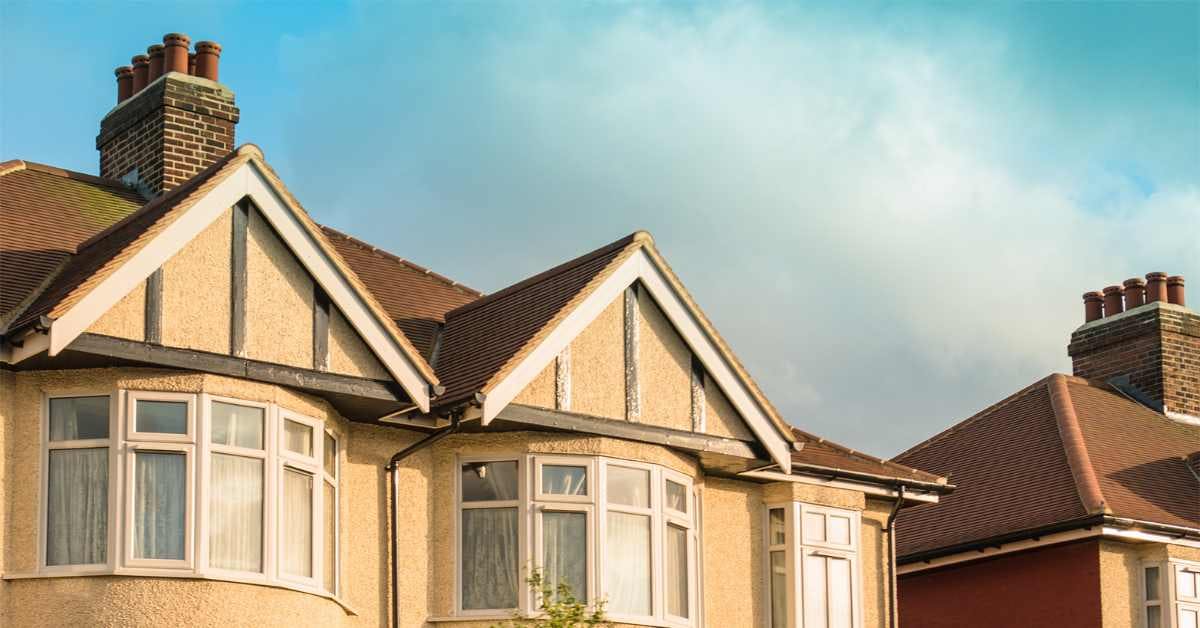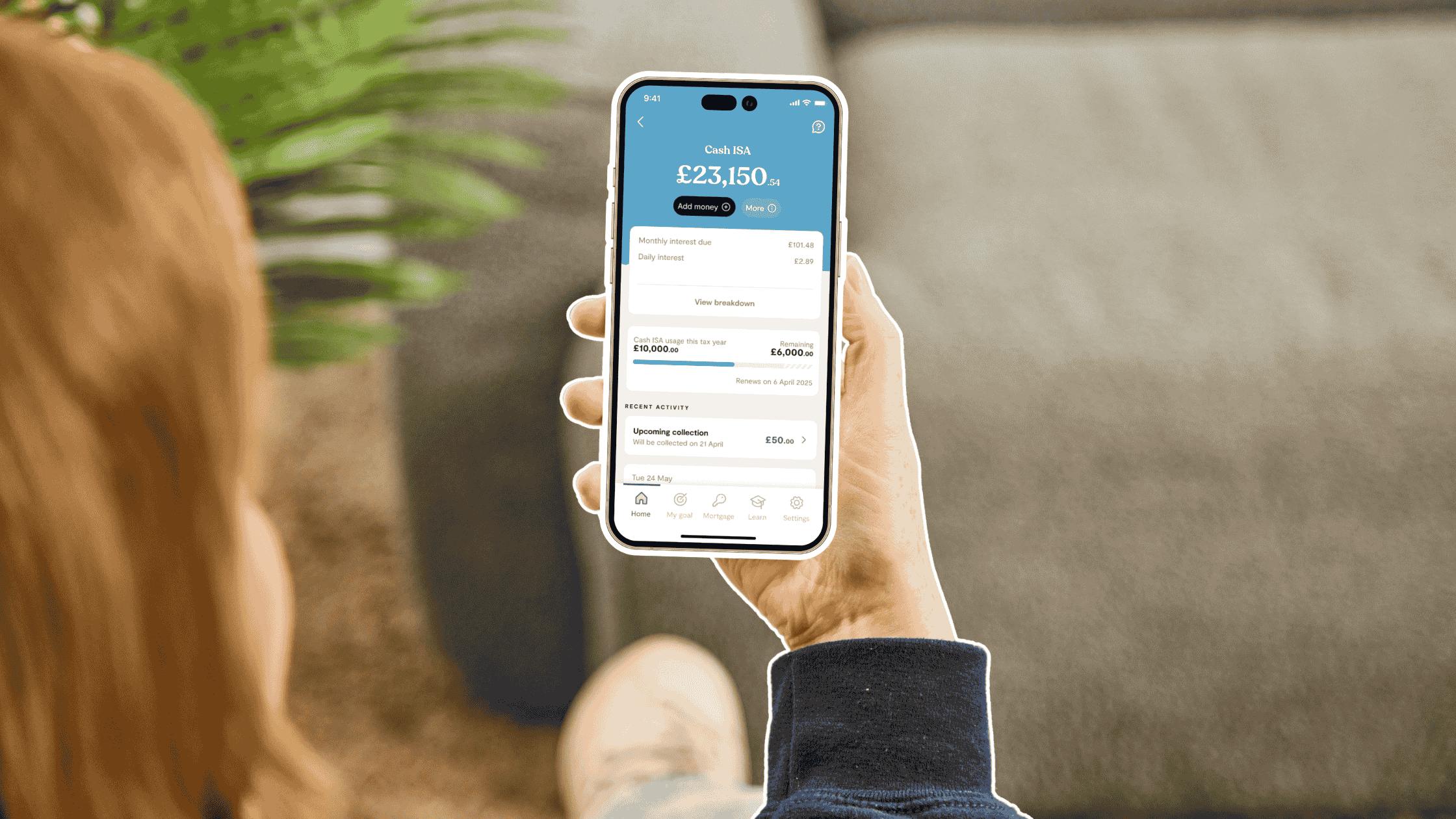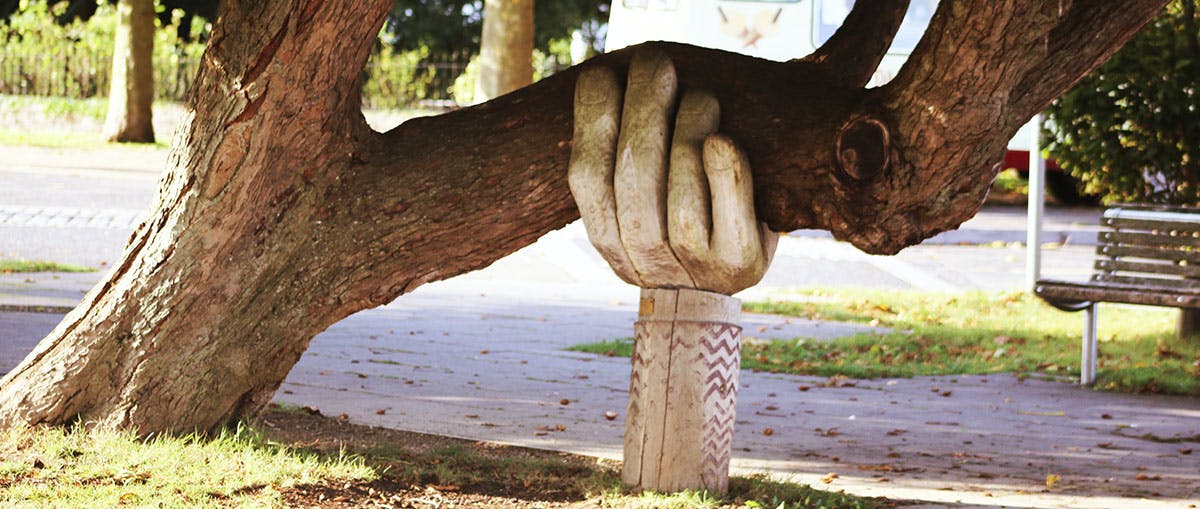How much deposit do I need for a house?
 Fae Kett
Fae KettWhilst deposits sound pretty straightforward, there is often more to them than meets the eye. Keep reading to find out everything you need to know about house deposits.
Buying a home? Earn 5.75% AER (variable) on your savings while you save
Mortgages can feel overwhelming. With our HomeSaver account, there'll be a reward waiting for you at the finish line, whether you're buying your first place, your next, or remortgaging.
How much deposit do you need for a house?
How much deposit do I need for a house?
To buy a home, you would typically put down a deposit of between 5% to 20% of the full property price, although some 100% mortgages do exist such as the Track Record mortgage. So, if you’re looking to buy a property worth £250,000, chances are you would need a downpayment of at least £12,500. However, saving more for a house deposit will give you access to a wider range of mortgage deals from across the market and access to lower interest rates.
What is the minimum deposit for a mortgage?
The minimum deposit for a mortgage is typically 5% of the full property price, however if you are using a specialist mortgage scheme you may have to put down more than this to qualify. If you have adverse credit, self-employed or are a UK visa holder, you may also be required to put down a larger deposit in order to access affordable mortgage interest rates.
When you have a larger house deposit, you have more equity in your home instead of debt. This means you pose a lower risk to the mortgage lender as you have a lower Loan to Value, and can therefore be offered cheaper interest rates.
Loan To Value (LTV) bands correspond to the size of the mortgage you need, and an interest rate is applied to each of these bands. Whilst that can sound confusing, it’s actually pretty simple. So, if you have a 40% deposit, you need to get a mortgage of 60% of the rest of the property price. If you have a 40% deposit and 60% mortgage, it’s likely you will be offered the lowest interest rate on the market. If you have a 95% mortgage, it’s likely you’ll be offered the highest.
Don’t panic if you only have a 5% deposit! You could still buy a property with a 95% mortgage. At Tembo, we are experts are alternative ways to get on the ladder, including low deposit mortgage schemes like Deposit Unlock and 5.5x Income Mortgages as well as guarantor mortgage schemes such as Savings as Security and Income Boost mortgages. See which of these specialist schemes you're eligible for by completing your deails today.
What's the average UK house deposit?
In the UK, the average house deposit is £53,414, representing around a 19% deposit. This is a huge sum of cash, so it's unsurprising that over half of first-time buyers require family support to buy a home. There are different ways a family member could help you get on the ladder, from becoming a guarantor to unlocking money from their property. There are also plenty of low deposit options which help you buy without family support, even with a small deposit saved up.
Find out more about low or no house deposit buying schemes and mortgage solutions here.
See what you could afford today
Use our Mortgage Affordability Calculator to see what you could afford to buy with your current house fund. If you find you can't borrow what you need, talk to Tembo. We are specialists at helping buyers boost what they can afford.
How to save for a house deposit
Saving for a house deposit is notoriously challenging, so it’s a good idea to set a bit of a plan if you’re seriously considering buying a property. When trying to set some money aside each month, consider:
- How big a deposit you are wanting to save
- Whether you can realistically set aside money each month on top of your current outgoings
- Where you want to buy a property and how much a property typically costs
There are options out there if you’re looking for assistance to save:
- If you open a Lifetime ISA you are entitled to a government bonus. The minimum age requirement is 18, and you can’t be older than 40. With a Lifetime ISA you can top up your savings with up to £4000 each year until you’re 50. The government will then give you a 25% bonus up to a maximum of £1,000 a year. The money can either be used for a house deposit or for your retirement, in which case you can’t take your cash out until you turn 60. Plus, with the Tembo Cash Lifetime ISA, you'll get the market-leading interest rate!
If you already have a Help to Buy ISA:
- You can no longer open a Help to Buy ISA, however if you do have one currently, you can pay into until November 2029 and claim the 25% bonus until November 2030. You can pay up to £200 a month into the ISA, and the government will top up your savings by 25% (up to £3000) when you buy your first home. The property you buy must be the only home you own, and has a maximum purchase price of £250,000 (or up to £450,000 in London).
Read more: How to save for a house
You might also like: Top 10 Lifetime ISA Providers
Boost your deposit by up to £1,000 every year
Open a Tembo Lifetime ISA to benefit from the 25% government bonus and our market-leading 4.3% AER (variable) interest rate, helping you save hundreds more than with the next best provider on the market.
When considering opening a LISA, remember that withdrawals for any purpose other than buying a first home or for retirement will incur a 25% government penalty, meaning you may get back less than you paid in.
How to buy a home with no deposit
It is possible to get a mortgage with no deposit. One way you can do this is through a guarantor mortgage. In order to be eligible for a guarantor mortgage, your parents can either put some savings with a certain bank through a springboard mortgage, or offer their home as security in case the buyer is unable to pay.
A more modern way of doing this is through a Deposit Boost, which involves unlocking money from a loved one's home to top up your house deposit, or be used as your entire down payment. Watch the video below to see how a Deposit Boost works:
Learn more about Tembo's Deposit Boost
As you can see, while the minimum amount you need for a house deposit is typically 5%, it is possible to get on the ladder without any savings through family support. There are also plenty of low-deposit mortgage schemes out there to help you buy, even without family help or much money saved in a house fund.
The best way to see which of these budget boosting schemes you could be eligible for is to complete your details with Tembo. Our unique, smart decisioning tech will compare your details against 20,000 mortgage products from across the market. At the end, you'll get to see all the ways you could get a mortgage, including maximum property price and indicative interest rates. You can also book a call with one of our award-winning team to talk through your options.
See how much you could boost your budget with Tembo
Fill our your details on our free online Fact Find to see all the ways you could boost your buying budget. Then, book a no-obligation call with one of our award-winning team to kickstart your journey to homeownership.







